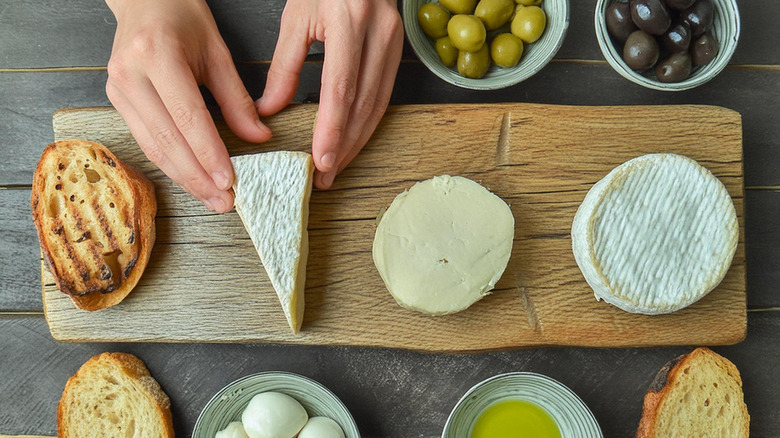This High-Protein Italian Cheese Could Also Reduce Your Colon Cancer Risk
Every year, more than 153,000 men and women are diagnosed with either colon cancer or rectal cancer, both of which fall under the umbrella term colorectal cancer. Colorectal cancer is the second most fatal of all cancers for both men and women, and is also becoming more common in young adults.
One way to lower your colorectal cancer risk is by eating foods that may have anticancer properties, like cheeses. Take the high-protein, calcium-rich mozzarella cheese, an Italian favorite, as an example: Several studies have shown a potential connection between dairy products and reduced incidence of colorectal cancer. A 2025 review in Nature Communications concluded that eating dairy likely lowered the risk of colorectal cancer in adult women. Researchers suggested that the relationship was driven by the presence of calcium. Meanwhile, a 2019 review in Advances in Nutrition examined cheese in particular as a possible anticancer food, revealing a possible correlation between eating cheese and preventing colon cancer.
Before you rush out to buy mozzarella, though, you may want to hear from registered dietitian Danielle Crumble Smith first. While there is existing research on dairy products and cancer risk reduction, mozzarella cheese wasn't specifically observed to be necessarily more beneficial than other cheeses in that regard.
What an anti-colorectal-cancer diet might look like
"It's important to note that these findings were not consistently supported by the case-control studies, which suggests a need for further research with larger samples and longer follow-up periods to confirm these associations," Smith explains. At the same time, she notes that in the studies, there were no harmful effects associated with consuming dairy products, including whole-fat dairy foods. "There are some components of dairy products like calcium and possibly vitamin D that might have protective effects against colorectal cancer." Still, your best bet is to focus on improving your overall diet, not just your dairy consumption. As Smith advises, eating a balanced, low-processed-foods diet that includes fruits, vegetables, whole grains, and lean proteins might be more impactful than just adding more cheeses like mozzarella into your day.
Another solution that Smith recommends is increasing your fiber intake to 25 grams daily for women and 36 grams for men. (Read about how your daily fiber intake can reduce your early death risk.) Smith notes that fiber speeds up the passage of food through the digestive tract, reducing the colon lining's exposure to possible carcinogens. At the same time, dietary fiber is good for the gut, where it's broken down into short-chain fatty acids like butyrate. Says Smith, "Butyrate has anti-inflammatory properties and helps maintain the health of colon cells." A 2024 review in the International Journal of Oncology noted butyrate's potential as a useful therapeutic agent in the treatment of some cancers.
Other strategies to decrease your colorectal cancer risk
Another way to reduce your colorectal cancer risk is by exercising each week for a combined 150 minutes (or more) at moderate intensity, as well as staying at a healthy weight based on your height, age, body, etc. You could also limit processed foods, especially processed meats. "These meats can contain compounds that cause mutations in the colon when they are digested," says Smith. A 2023 review in Clinical Nutrition showed evidence of a link between colorectal cancer and the consumption of highly processed foods. Reducing your consumption of alcohol and avoiding (or stopping) nicotine also belong on the checklist of actionable ways to reduce common cancer risks.
With that said, you can certainly feel okay about turning to mozzarella as a cheese of choice. Smith says that, due to its calcium, protein, vitamin B, and vitamin D content, "incorporating mozzarella into a balanced diet that includes a variety of nutrients can help maximize its benefits while mitigating potential risks." However, she cautions that being realistic about portion size and mozzarella's downsides, such as its potentially high sodium and saturated fat content, is important. "While mozzarella is lower in fat compared to other cheeses, it still contains saturated fats, which should be consumed in moderation, especially if you have a genetic predisposition to cholesterol-related issues," she explains. "[F]or some, eating saturated fats could have a bigger impact on their cholesterol and overall heart health."



